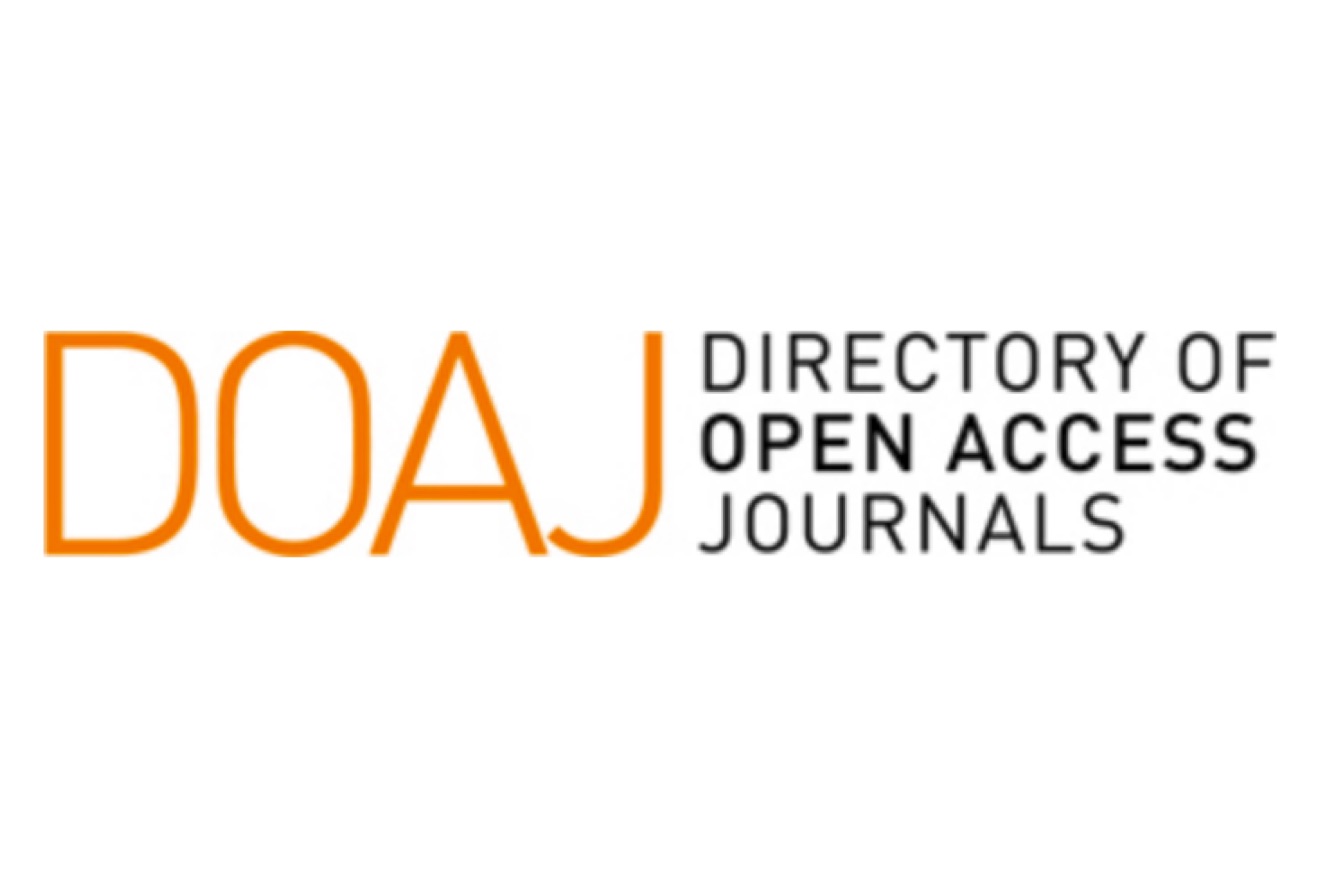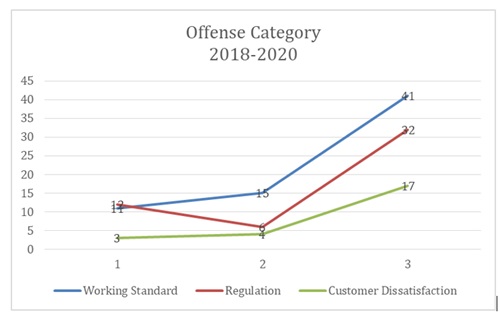Predicting Online Advertisement Avoidance for the Google Ads System Selected Antecedents and Outcome
Downloads
Additional Files
Indonesia is the third-largest country that utilizes ad-blockers, despite online advertising there expanding quickly. In addition to consumers generally viewing internet use as common. This study aimed to examine how prior bad experiences and perceived goal impediments affect online advertisement avoidance. Students who used the internet the most during the Covid-19 pandemic in 2021 were chosen as research participants. The F-test demonstrated that perceived aim hindrance, advertisement clutter, and prior terrible experience all impacted advertisement avoidance simultaneously using the Partial Least Square - Structural Equation Modeling (PLS-SEM) technique. The results are anticipated to guide marketing professionals and businesses in choosing how to develop and arrange adverts that are precisely on target without upsetting internet users. The results of this study should help policymakers assess how to create a welcoming and secure online environment.
Downloads
C. Lee, "Banner blindness: An effect of information overload on the World Wide Web," Retrieved on October, vol. 14, 2015.
M. Y. Imran, N. S. Elahi, G. Abid, F. Ashfaq, and S. Ilyas, "Impact of perceived organizational support on work engagement: Mediating mechanism of thriving and flourishing," Journal of Open Innovation: Technology, Market, and Complexity, vol. 6, no. 3, p. 82, 2020.
W. Li and Z. Huang, "The research of influence factors of online behavioral advertising avoidance," American Journal of Industrial and Business Management, vol. 6, no. 9, pp. 947-957, 2016.
P. Chatterjee, "Are Unclicked Ads Wasted? Enduring Effects of Banner and Pop-Up Ad Exposures on Brand Memory and Attitudes," Journal of electronic commerce Research, vol. 9, no. 1, 2008.
C.-H. Cho and U. o. T. a. A. i. a. as-, "Why do people avoid advertising on the internet?," Journal of advertising, vol. 33, no. 4, pp. 89-97, 2004.
P. a. E. Speck, M., " Predictors of Advertising Avoidance in Print and Broadcast Media," Journal of advertising, pp. 61-76, 1997.
E. Hariningsih and E. Munarsih, "Analisis perilaku penghindaran iklan internet oleh konsumen," Jurnal siasat bisnis, vol. 18, no. 2, pp. 180-189, 2014.
I. Redondo and G. Aznar, "To use or not to use ad blockers? The roles of knowledge of ad blockers and attitude toward online advertising," Telematics and Informatics, vol. 35, no. 6, pp. 1607-1616, 2018.
R. Pahlevi, "Persentase Pendengar Podcast di Indonesia Terbesar Ketiga di Dunia," ed: Databoks, 2021.
S. Khairawati, "Effect of customer loyalty program on customer satisfaction and its impact on customer loyalty," International Journal of Research in Business and Social Science (2147-4478), vol. 9, no. 1, pp. 15-23, 2020.
R. Briggs and N. Hollis, "Advertising on the web: Is there response before click-through?," Journal of Advertising research, vol. 37, no. 2, pp. 33-46, 1997.
J. P. Benway, "Banner blindness: The irony of attention grabbing on the World Wide Web," in Proceedings of the Human Factors and Ergonomics Society Annual Meeting, 1998, vol. 42, no. 5: Sage Publications Sage CA: Los Angeles, CA, pp. 463-467.
S. Li, H. Sun, and J. Yu, "Competitive targeted online advertising," International Journal of Industrial Organization, vol. 87, p. 102924, 2023.
Y. A. Jeon, H. Son, A. D. Chung, and M. E. Drumwright, "Temporal certainty and skippable in-stream commercials: Effects of ad length, timer, and skip-ad button on irritation and skipping behavior," Journal of Interactive Marketing, vol. 47, no. 1, pp. 144-158, 2019.
W. Raharjo and W. Widyastuti, "Ad Intrusiveness dan Sikap Konsumen terhadap Iklan On-Line pada E-Commerce," BISMA (Bisnis dan Manajemen), vol. 11, no. 2, pp. 117-130, 2019.
U. K. Suganda and Y. Priadi, "Improving customer loyalty through customer experience, price attractiveness, and customer relationship management," Jurnal Manajemen Industri dan Logistik, vol. 7, no. 1, pp. 195-204, 2023.
K. Goodrich, S. Z. Schiller, and D. Galletta, "Consumer reactions to intrusiveness of online-video advertisements: do length, informativeness, and humor help (or hinder) marketing outcomes?," Journal of advertising research, vol. 55, no. 1, pp. 37-50, 2015.
S. Song, X. Yao, and N. Wen, "What motivates Chinese consumers to avoid information about the COVID-19 pandemic?: The perspective of the stimulus-organism-response model," Information Processing & Management, vol. 58, no. 1, p. 102407, 2021.
A. R. Zumrah and S. Boyle, "The effects of perceived organizational support and job satisfaction on transfer of training," Personnel review, vol. 44, no. 2, pp. 236-254, 2015.
I. Ghozali and H. Latan, "Konsep, teknik, aplikasi menggunakan Smart PLS 3.0 untuk penelitian empiris," BP Undip. Semarang, vol. 290, 2015.
S. Athey, E. Calvano, and J. Gans, "The impact of the internet on advertising markets for news media," National Bureau of Economic Research, 2013.
E. R. Antón, "Use of strategic serial position and attention resources to improve radio ad recall," Revista Latina de Comunicación Social, no. 69, 2014.
I. Ghozali, "Structural equation modeling, alternative method with partial least square (PLS)," Semarang: Diponegoro University Publishing Agency, 2014.
JMIL Jurnal Manajemen Industri dan Logistik (Journal of Industrial and Logistics Management) is an Open Access Journal. The authors who publish the manuscript in JMIL Jurnal Manajemen Industri dan Logistik agree to the following terms:

JMIL Jurnal Manajemen Industri dan Logistik is licensed under a Creative Commons Attribution 4.0 International License. This permits anyone to copy, redistribute, remix, transmit and adapt the work provided the original work and source is appropriately cited.
This means:
(1) Under the CC-BY license, authors retain ownership of the copyright for their article, but authors grant others permission to use the content of publications in JMIL Jurnal Manajemen Industri dan Logistik in whole or in part provided that the original work is properly cited. Users (redistributors) of JMIL Jurnal Manajemen Industri dan Logistik are required to cite the original source, including the author's names, JMIL Jurnal Manajemen Industri dan Logistik as the initial source of publication, year of publication, volume number, issue, and Digital Object Identifier (DOI); (2) Authors grant JMIL Jurnal Manajemen Industri dan Logistik the right of first publication. Although authors remain the copyright owner.




























